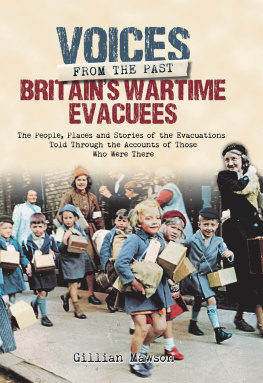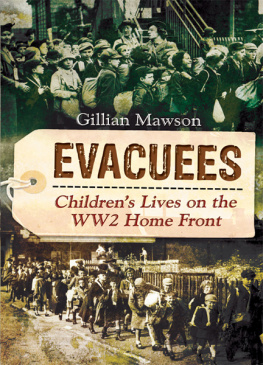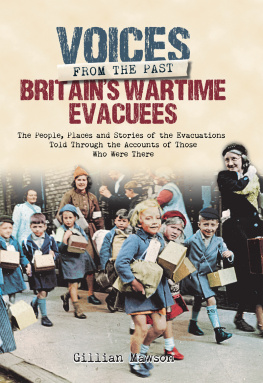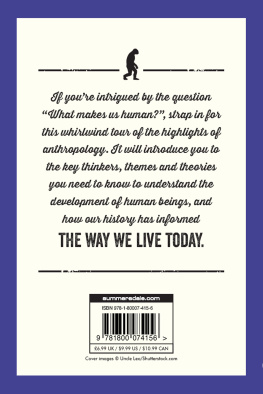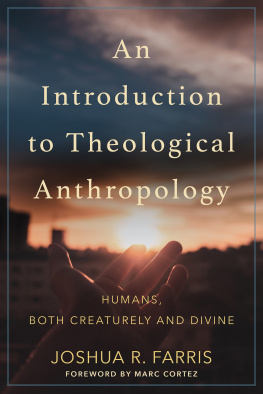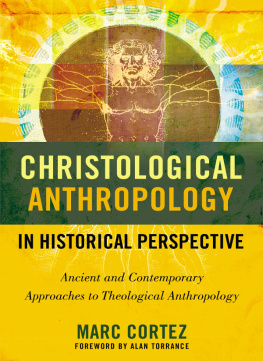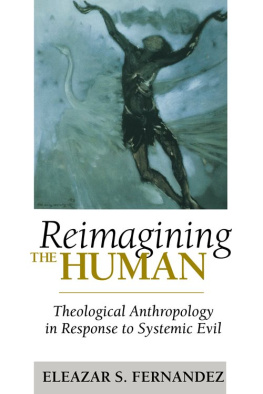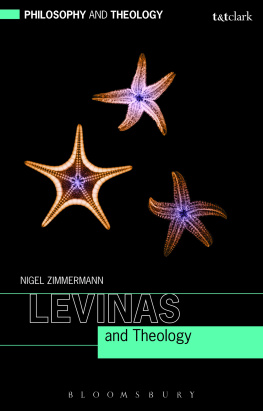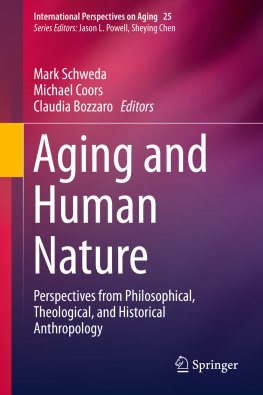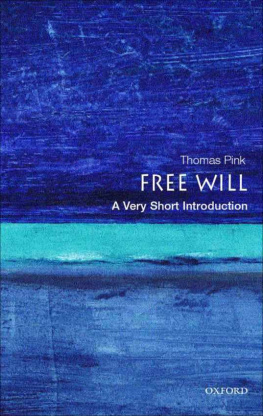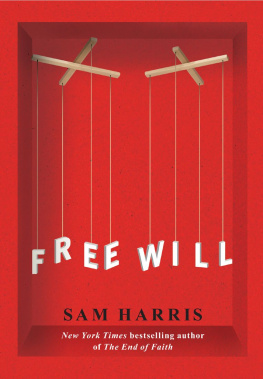
To my daughter, all of whose choices lie before her
The works mentioned in the suggestions for further reading at the end of this book have been useful to me in clarifying my thoughts on this topic and thus I am grateful to their authors. I mention here a few of my greatest debts: in my treatment of the Consequence Argument and of the notion of self-forming actions, I draw heavily on the work of Bob Kane and in my treatment of agent causation I similarly draw on the work of John Bishop, Randolph Clarke and Tim OConnor. I am also grateful for the comments of John Bishop, Randolph Clarke, Peter Kail, Bob Kane, Kevin Timpe and Richard Swinburne on my own writing, and for the comments made by the audience at the conference on free will supported by the Templeton Foundation at which I presented a version of the penultimate chapter.
Oxford, 2010
Chapter One
Introduction
What is the problem of free will?
If we were to read opinion pieces in our newspapers, we would find in them no shortage of worries about the levels of freedom enjoyed by institutions and individuals in our society. Most often, the worry would be that they enjoy too little freedom: for example, a favourite claim of journalists is, for obvious reasons, that there are undue restrictions on the freedom of the press. But sometimes the worry would be that a group or an individual enjoys too much freedom: if we picked up a certain type of newspaper, we would not have to search for long before we found an opinion piece designed to make us choke on our breakfast cereal by telling us in outraged tones of how the perpetrator of some terrible crime is, nevertheless, free while in prison to enjoy various pastimes of which many ordinary hardworking folk can only dream.
Sometimes our political leaders tell us that they are sending our armies into another country as they are worried about the cause of freedom. Perhaps it is our own freedom that they tell us this invasion will protect (the leader of this other country has weapons of mass destruction which directly threaten us, we may be told). Perhaps it is to the appropriately enhanced freedom of the citizens of this other country, or at least those who will be left alive after our armies have done their work, that we should look if we are to find a justification for their decision. Perhaps their real motive springs from the anticipated enhancement of our own economic freedom, once we have secured access to the natural resources of this country on our own terms. In any case, the notion of freedom does a lot of work some reputable, some disreputable in everyday political and social discussion and reasoning. There are certainly important issues in Political Philosophy which cluster around the concepts concepts, plural, for the only thing that is certain is that there is more than one of them of freedom as so deployed.
The issue to which this book addresses itself is deeper than any of these concerns. In order ultimately to plunge down to its depths, let me first whisk you up and away from all these worries and take you, in your imagination, to a land where you discover that the occasions for the sorts of worries sketched in the previous two paragraphs have simply disappeared: in this land, you are amazed to discover that all the problems of political and social freedom have been resolved to your complete satisfaction. Let me tell you a little bit more about this marvellous country and thus bring you to see why even here where the reasons for all worries about political and social freedoms have evaporated a worry about a deeper sort of freedom might yet remain.
Imagine then that you find yourself in a society which its citizens call The Peoples Republic of Freedom. In this country, the citizens happily share the duties of agriculture; working to maintain and improve infrastructure and the environment; raising families; and caring for the sick and elderly. Their own good efforts and the technology available to them mean that they have ample time to pursue without restriction whatever religious, artistic and scientific projects they wish. You are fortunate enough to be guided around this utopia by its genial creator and are hence able to ask of him the questions that you have.
Being a lover of freedom above all else, you go looking for reasons to worry about the level of freedom enjoyed by people in this society. Early on, you read one of the newspapers and it seems, to your jaded eyes, particularly suspicious in not raising any concerns on this score whatsoever, so you inquire of the creator first what restrictions on the press are in place. To your astonishment, you learn that there are none at all. Ah, you surmise, so that must mean that sometimes people choke on their breakfast cereal by reading of the good treatment being given to criminals. Again, you learn, you are wrong in your presumption this time for two reasons. First, no editor of any paper in The Peoples Republic of Freedom ever wishes to print anything that would interfere in this manner with the freedom of his or her readers to enjoy their breakfast uninterrupted and so, even were there such a story to be told, he or she would not choose to tell it. But, secondly and more fundamentally, there is no such story to be told for there are no criminals.
You are incredulous; you have passed only unlocked doors since you have arrived and have, it suddenly occurs to you, not seen a single CCTV camera (in your home country, such things now seem to sprout from every lamppost). Surely sometimes, you say, the temptations provided by this chronic lack of security-mindedness on the part of the citizens of The Peoples Republic of Freedom will have proved too great for one of them to resist. However, the creator benignly assures you that they have not and indeed over the next few weeks you are able to remove any cause for worry you might have on this score by experiment: try as you might, over several weeks living in this society, you cannot find a single person whom you can tempt to infringe, in even the slightest way, the laws or the freedoms of anyone else. The citizens are entirely benevolent.
Over an elongated period living amongst the citizens of The Peoples Republic of Freedom, you cannot find any cause to worry to any extent at all about the political and social freedoms its citizens enjoy; their society thus seems to you maximally deserving of its name. And so, being a lover of freedom above all else, you ask the creator how you might yourself apply for citizenship. He is delighted to report that the procedure for becoming a full citizen is quick, easy, and guarantees success. He himself will guide you through it over the next few minutes. Very soon you will never need to worry about suffering from a lack of freedom again, he amiably assures you.
Guided by the creator then, you are scanned by a sophisticated computer, the purpose of which, the creator tells you, he will describe in just a moment; you salute the countrys flag and pledge an oath of allegiance; and you drink to the dregs a large cup of the countrys national beverage, Freedom Froth. This is a beverage which it now occurs to you for the first time you have seen being drunk by the citizens of The Peoples Republic of Freedom at every mealtime since you have arrived and yet had not hitherto tasted yourself. As soon as you have downed the Freedom Froth, you start to feel yourself becoming rather light-headed. Do sit down, the creator affably suggests, the drink will take a couple of minutes to work its wonders, a couple of minutes which with your agreement Ill happily fill by telling you a little bit more about the computer and just how it is that I have managed to eliminate any cause for worries about freedom within The Peoples Republic of Freedom. The creator then goes on to tell you the following.
Next page

